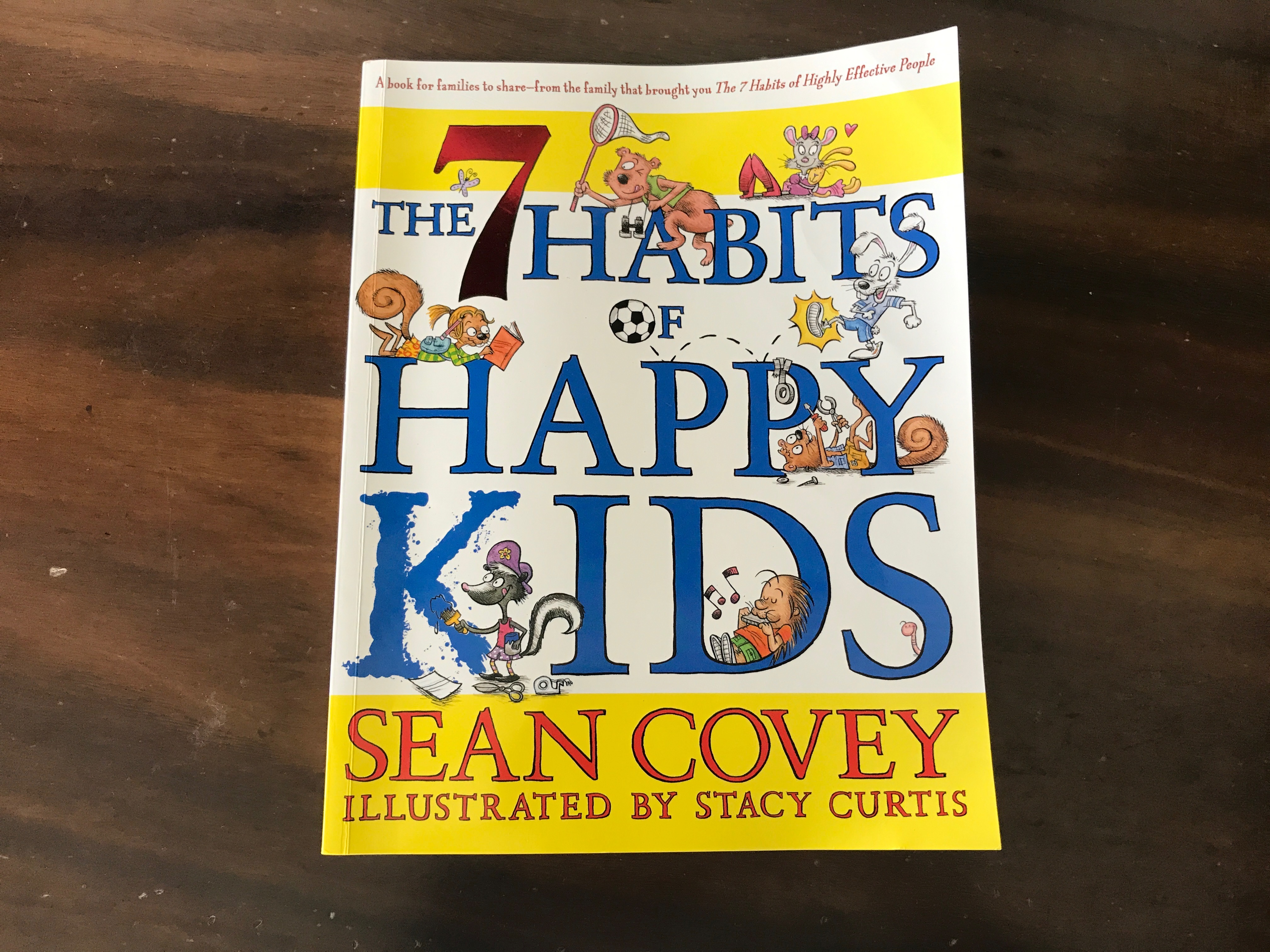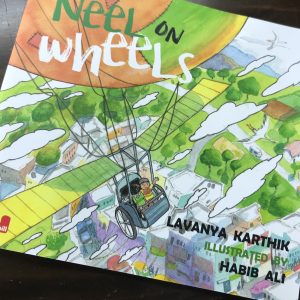There are some timeless principles that have a deep influence on all areas of our lives. Wouldn’t it be a great idea to instill these golden principles into the very DNA of your child? The 7 Habits of Happy Kids does just that.
Written by Sean Covey (son of Stephen Covey, the bestselling author of the book The 7 Habits of Highly Effective People) and illustrated by Stacy Curtis, the book is a beautifully written and accessible version of seven habits that will go a long way in ensuring everlasting happiness for your child.
Sean Covey also wrote the book “The 7 Habits of Highly Effective Teens”, based on the principles outlined in his father’s book. He realised that youngsters who read the book immediately got all the principles, and obviously it made a big difference to their lives. This is why he was motivated to introduce these ‘universal laws’ for younger children.
Bookedforlife verdict
When my son’s aunt gifted him this book, he read it by himself first, but then started excitedly talking to me about the characters. He asked me, “Which character do you like best?”…so, well of course, I had to read the book myself as well!
Here is what appealed to me…
- Seven principles…seven simple and beautifully illustrated stories. It can’t get simpler than that! Each story conveys a simple truth, stated clearly.
- The host of animal characters immediately strike a chord with children.
- At the end of each chapter, Covey discusses practical ways to imbibe the habit mentioned in the story in our daily lives. There are tips for parents, a list of ‘baby steps’ for children and a series of questions to encourage discussion. If parents stick by this, they will realize that they will soon share a common language and thought process with their child, when it comes to some key issues in life.
- A suggestion: Let your child make a list of the 7 habits and illustrate it. Then, put it up at a place where you both can see it. This will act as a constant reinforcement and reminder, much after you have read the book. While Covey provides a 7 Habits Tree as a ready reckoner in the end, nothing like having your child make one for himself or herself!
The question of identity
Stephen Covey, the bestselling author of The 7 Habits of Highly Effective People, first published in 1988, discusses the relevance of these timeless principles for little children as well. He says:
“When children are immersed in timeless, universal principles-such as responsibility, service and honesty- both at home and at school, their tremendous worth and potential is affirmed and reinforced. They develop confidence, integrity, and the courage to do the right thing. They build character. And they get in touch with their real DNA. On the other hand, if children are not taught true principles and don’t see them modelled, they will grow up with comparison based identities. In other words, they get their self-worth, or lack of it thereof, from how well they stack-up compared to others. As a result, peer pressure becomes their DNA (a cultural-versus-real DNA if you wish) and they lose self-confidence, integrity and courage. They become more concerned with their image and with themselves and are thus robbed of their real identity”
The 7 Habits of Happy Kids is a book you must read with your child. But, let it be a self-help manual you refer to from time to time. Make it a part of your life, and a part of your conversation and interaction with your child…and then see the difference!
The 7 Habits of Happy Kids by Sean Covey




